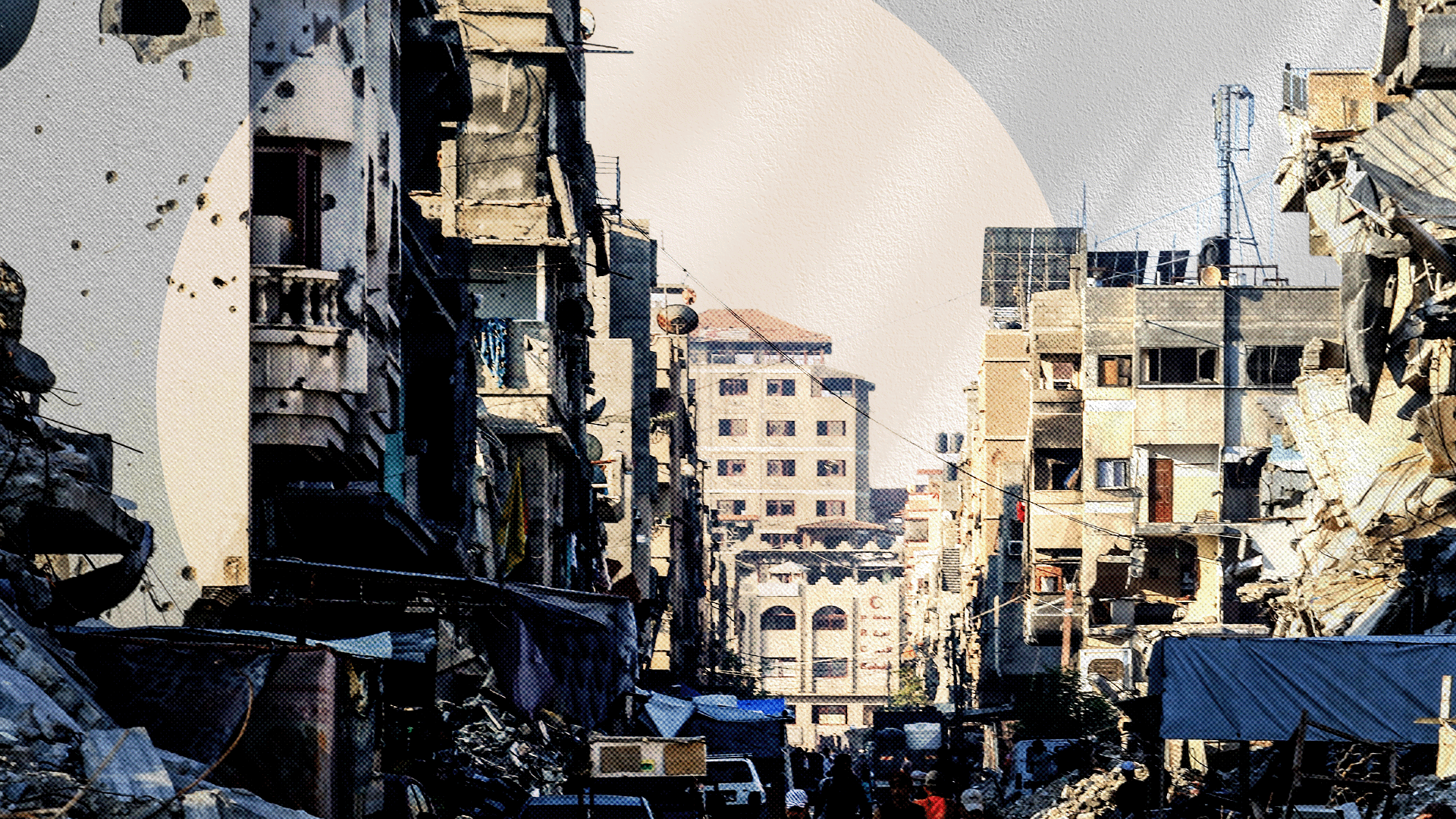Gaza conflict: 'Ceasefire' after days of violence
- Published
Rockets were seen in the sky above Ashkelon in Israel
There has been a lull in hostilities in the Gaza Strip after Palestinian militants said that a ceasefire with Israel had been agreed.
It comes after a weekend during which Palestinian militants launched hundreds of rockets into Israel prompting retaliatory air and artillery strikes.
At least four Israelis and 25 Palestinians were killed.
Israel has not confirmed the truce, but its military has lifted emergency measures in place in southern Israel.
The violence flared up on Friday during a protest against the blockade of Gaza.
What do we know about the ceasefire?
A TV station run by Hamas - the militant movement which controls Gaza - announced that both sides had agreed the ceasefire, beginning at 04:30 local time (01:30 GMT) on Monday.
Egypt is said to have brokered it - assisted by the United Nations and Qatar.
The Israel Defense Forces (IDF) has not mentioned the truce, though the military said it had lifted protective restrictions imposed on residents in southern Israel since the flare up began, including schools close to the strip reopening.
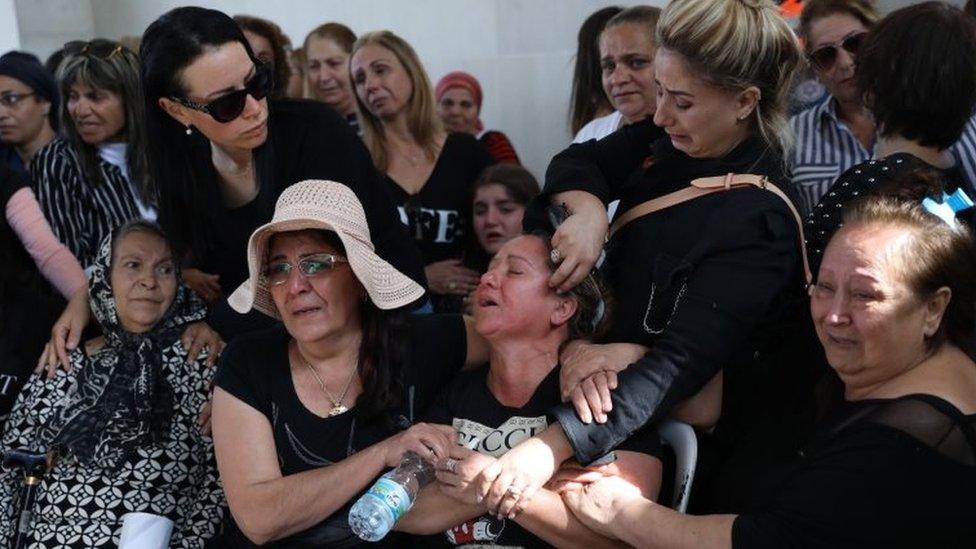
The funeral for one Israeli casualty, Moshe Agadi, was held on Sunday
Shortly after the ceasefire reportedly went into effect, Israeli Prime Minister Benjamin Netanyahu said in a statement : "The campaign is not over...we are preparing to continue".
Early on Monday the IDF said militants had fired 690 rockets into southern Israel during the past 48 hours - 240 of which had been intercepted by the country's Iron Dome missile defence system.
In response, Israel had targeted 350 sites belonging to Hamas and Islamic Jihad, the IDF said, external.
Mr Netanyahu had earlier warned that forces around the strip would be "stepped up with tank, artillery and infantry forces".

Timing is key

This intense surge in violence appeared to peter out early on Monday. Once again, the mediation of Egypt seems to have been key.
Palestinian reports suggest that an understanding previously brokered by Cairo will now be implemented. That was meant to see an easing of the tight blockade on Gaza with the transfer of millions of dollars of Qatari aid money - in return for calm.
Islamic Jihad and Hamas may have calculated that this was a good time to pressure Israel - as it prepares to mark two national holidays - its memorial day and independence day - and host the Eurovision song contest.
Next week, will be the anniversary of the deadliest day of protests along Gaza's boundary fence with Israel and Hamas, in particular, wants to show achievements. Palestinian Muslims are now beginning the holy month of Ramadan - a time when they strongly feel the economic crisis.

What do we know about casualties?
Four people have so far died from the violence in Israel:
A 58-year-old man died from injuries in a rocket strike on a house in Ashkelon on Saturday night
A worker died in Ashkelon on Sunday when a rocket hit a factory
Another man, 67, was killed when his car was apparently struck by an anti-tank missile
A fourth man, who was 21, was killed in the southern city of Ashdod
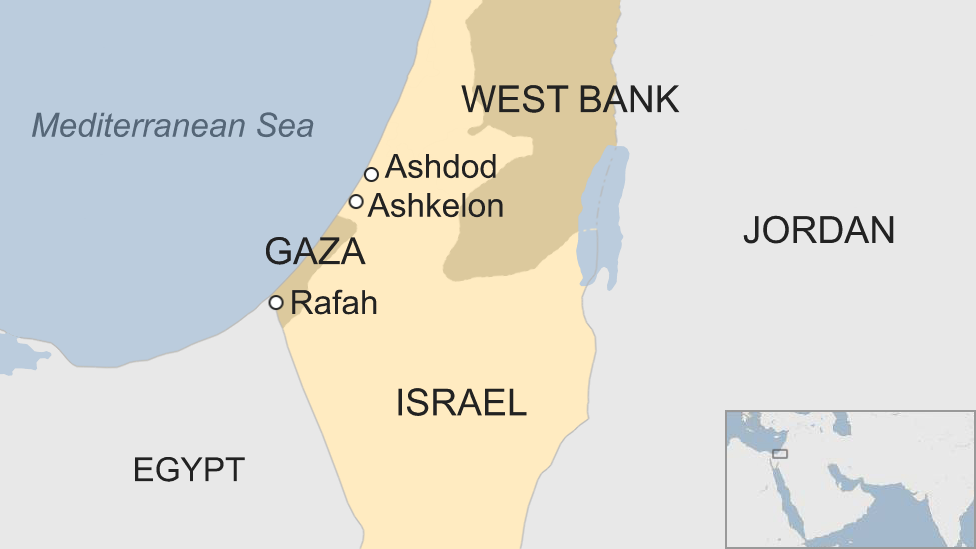
The Gaza health ministry says 25 Palestinians have died across the weekend. The Islamic Jihad group said seven of the dead were its members.
Civilians, including a 12-year-old boy and two pregnant women, were also among those reportedly killed.
Israel has contested the account of the death of one woman and her 14-month-old niece on Saturday. They blamed their deaths on a Palestinian rocket that fell short of its target.
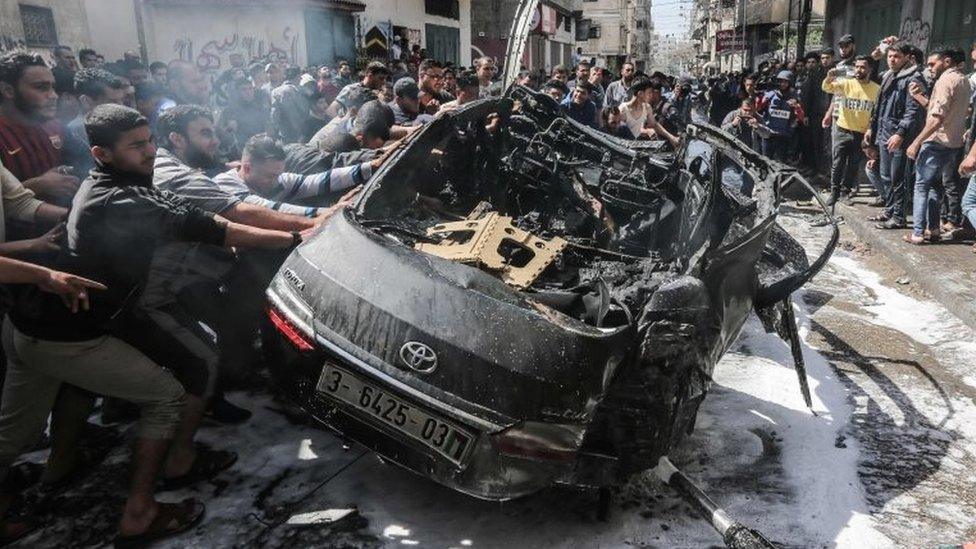
A car, apparently belonging to a Hamas militant, was one of the sites targeted by Israel on Sunday
On Sunday, the Israeli military admitted a targeted assassination of a Hamas commander named Hamed Hamdan al-Khodari - sharing a video of the apparent moment they hit his car.
The sites Israel says it has destroyed include a multi-storey building in Gaza City, which it said included Hamas intelligence offices.
Turkey said its state news agency Anadolu had an office there.
The latest violence began during protests in Gaza on Friday against the blockade of the area - which Israel says is needed to stop weapons reaching militants.
A Palestinian gunman shot and wounded two Israeli soldiers at the boundary fence. Israel retaliated with an air strike that killed two militants.
The rocket barrage from Gaza began on Saturday morning, hitting a number of homes in Israeli towns and villages.
How does the flare-up compare?
It has been one of the biggest surges in violence since the conflict of July and August 2014, when Israel launched a ground offensive on Gaza following the kidnapping and killing of three Israeli teenagers.
The conflict resulted in the death of 67 Israeli soldiers. The UN said Hamas and its allies had launched more than 4,800 rockets and 1,700 mortars that killed six civilians in Israel.
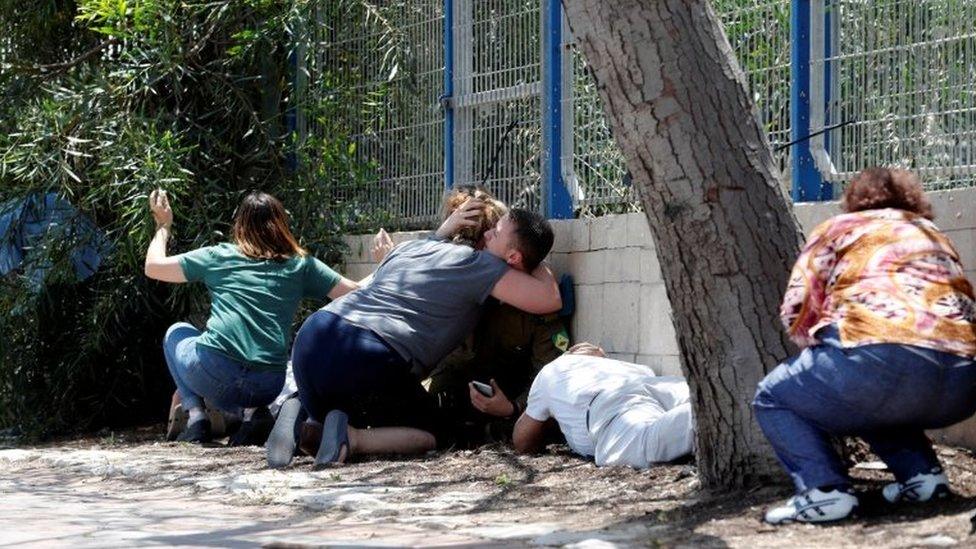
People are seen crouching amid a siren warning in the Israeli city of Ashkelon
On the Palestinian side, 2,251 people, including 1,462 civilians, were killed in the seven-week conflict, according to the UN. These included 13 Palestinians killed when a mortar launched from Gaza exploded near Gaza City, according to an Amnesty report.
Since then, Palestinian militants have continued to carry out sporadic strikes on Israel.
In March this year, several rockets were fired into southern Israel, triggering raids on Gaza by the Israeli air force. No fatalities were reported on either side.
In early April a ceasefire was brokered by Egypt, but Hamas and allied militant groups later accused Israel of violating its terms.
What has the reaction been?
Nickolay Mladenov, the UN Special Coordinator for the Middle East Peace Process, has condemned the recent violence and said the UN is working with both sides to restore calm.
President Donald Trump said the US supported Israel 100% and warned Palestinians that "these terrorist acts Israel will bring you nothing but more misery".
Allow X content?
This article contains content provided by X. We ask for your permission before anything is loaded, as they may be using cookies and other technologies. You may want to read X’s cookie policy, external and privacy policy, external before accepting. To view this content choose ‘accept and continue’.
Iran's foreign minister condemned what he labelled as Israel's "savage" attacks on Gaza, while also hitting out at "unlimited American support" of Israel.
Save the Children has said it has had to suspend all but essential programs in the Gaza strip.

How does Israel's Iron Dome missile shield work?
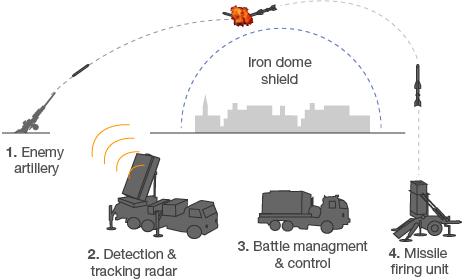
1. Enemy fires missile or artillery shell
2. Projectile tracked by radar. Data relayed to battle management and control unit
3. Data analysed and target co-ordinates sent to the missile firing unit
4. Missile is fired at enemy projectile

- Published26 June 2023
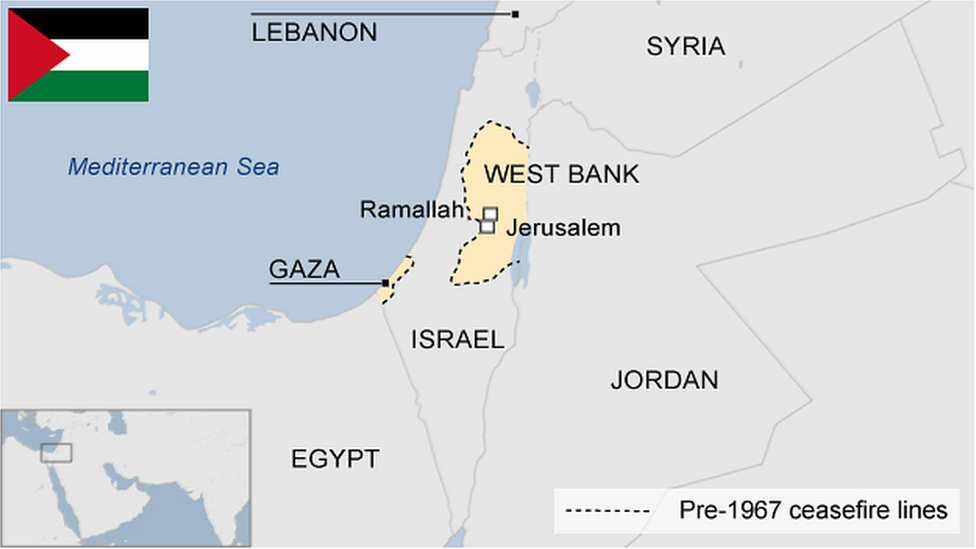
- Published25 March 2019
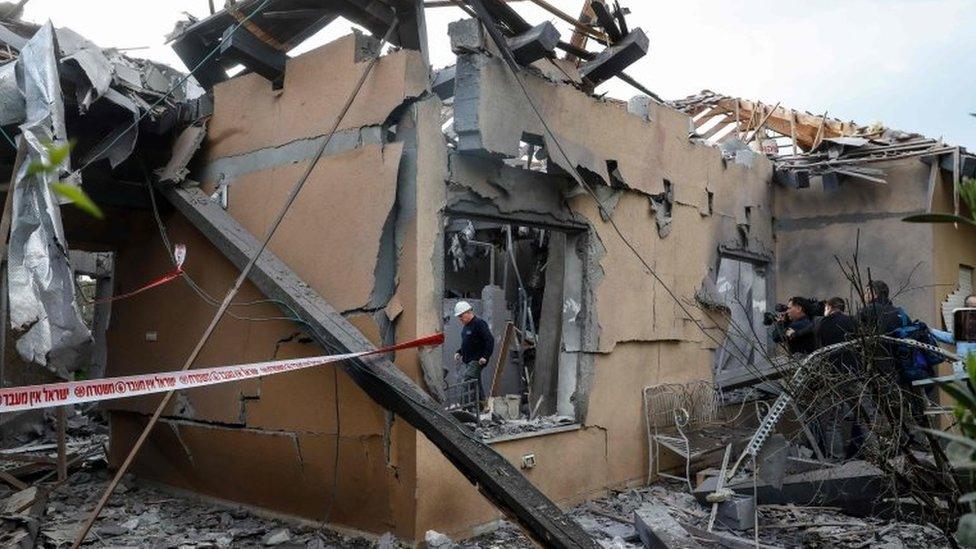
- Published16 January
